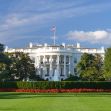Numerous US states such as Florida and Texas are banning books in schools and libraries, with some making even the mention of “gay” or “trans” illegal in classroom instruction. In the 2021-22 school year, over 2,500 book bans were activated, impacting students in approximately 140 school districts in 32 states, all with Republican-led legislatures and/or governors. In the 2022-23 school year, the trend is continuing to grow, with Texas and Florida leading the way.
Over a hundred members of the Harvard University faculty announced the creation of a new organization: the “Council on Academic Freedom.” Their mission is to protect “free inquiry, intellectual diversity, and civil discourse.”
This new council is comprised not only of left-leaning thinkers but includes those from a diverse spectrum of political beliefs.
Steven Pinker, a Harvard psychology professor and co-founder of the Council on Academic Freedom, along with Bertha Madras, Professor of Psychobiology at Harvard Medical School and director of the Laboratory of Addiction Neurobiology at McLean Hospital, announced the launch of the new initiative in a piece published in the Boston Globe.
Americans are expressing a lack of confidence in higher education in the US, according to Pinker, who declared that the almost 50 percent of Americans who still believe higher education is positive is dwindling. Pinker said that with so much negativity aimed at American universities and colleges, it’s time to act to protect academic freedom.
“Eternal vigilance is the price of liberty, and if we don’t defend academic freedom, we should not be surprised when … a disgusted citizenry writes us off,” said Pinker.
A Gallup news poll backs up Pinker’s statement. According to Gallup, the poll found “48% of U.S. adults expressing "a great deal" or "quite a lot" of confidence in higher education this year, down from 57% in 2015. The decline is most evident among Republicans, whose confidence level has fallen by 17 percentage points, but Democrats and independents are also less confident now than they were three years ago.”
The same poll shares data showing how higher education is now a politicized subject, with most Democrats backing institutions of higher learning while most Republicans weigh in that they believe universities preach a liberal agenda.
The poll reports that “Republicans and Democrats now show a 23-point gap in confidence in higher education, compared with 12 points in 2015. Higher education has clearly become more politicized in Americans' eyes, consistent with trends in their opinions of the president, preferences on key issues, and trust in certain U.S. institutions. In the case of higher education, many Republicans believe colleges and universities are institutions that promote a liberal political agenda.”
The Harvard council says free speech, especially on campuses across the country, is in grave danger of being a victim of the politicized conservative movement, already banning classic books and even the mention of the existence of transgender people in the classroom, in conservative states.
“The reason that a truth-seeking institution must sanctify free expression is straightforward. No one is infallible or omniscient,” said Pinker. “Mortal humans begin in ignorance of everything and are saddled with cognitive biases that make the search for knowledge arduous. These include overconfidence in their own rectitude, a preference for confirmatory over disconfirmatory evidence, and a drive to prove that their own alliance is smarter and nobler than their rivals. The only way that our species has managed to learn and progress is by a process of conjecture and refutation: Some people venture ideas, others probe whether they are sound, and in the long run the better ideas prevail.”
The Council on Academic Freedom states that the “repression of academic freedom is systemic and must be actively resisted.” In school rooms and libraries around the US, in conservative states, educators, librarians, aides, and students are not allowed to read hundreds of classic books due to mentions of sex or LBGTQ+ identity, and if any students or anyone on school grounds discuss such things in the classroom, the schools could face fines by the state.
The new council’s statement weighs in on the censorship issues sweeping the nation.
“One kind of resistance will surely make things worse: attempts by politicians to counter left-wing muscle with right-wing muscle by stipulating the content of education through legislation or by installing cronies in hostile takeovers of boards of trustees,” the statement states. “The coin of the realm in academia ought to be persuasion and debate, and the natural protagonists ought to be the faculty. They can hold universities accountable to the commitments to academic freedom that are already enshrined in faculty policies, handbooks, and in the case of public universities, the First Amendment.”
In particular, the statement says, students are vulnerable in the US culture of censorship and laws that punish diverse views or ways of life.
“Yet we know that not all is well for more vulnerable colleagues and students…we know of cases of disinvitation, sanctioning, harassment, public shaming, and threats of firing and boycotts for the expression of disfavored opinions,” the statement says. More than half of our students say they are uncomfortable expressing views on controversial issues in class.”
As of today, Texas has banned 800 books in 22 school districts, and Florida has banned 566 books. These banned books include those discussing critical race theory, sexuality, and LGBTQ+ issues.
The idea of Florida’s “Don’t Say Gay” law has spread to numerous states. Over the past three years, legislative laws banning education about gender identity and sexual orientation have been growing, and since 2021, 22 states have introduced and/or passed 42 bills restricting in-school education about LBGTQ+ subjects, as reported by PEN America, a nonprofit free speech advocacy organization.






